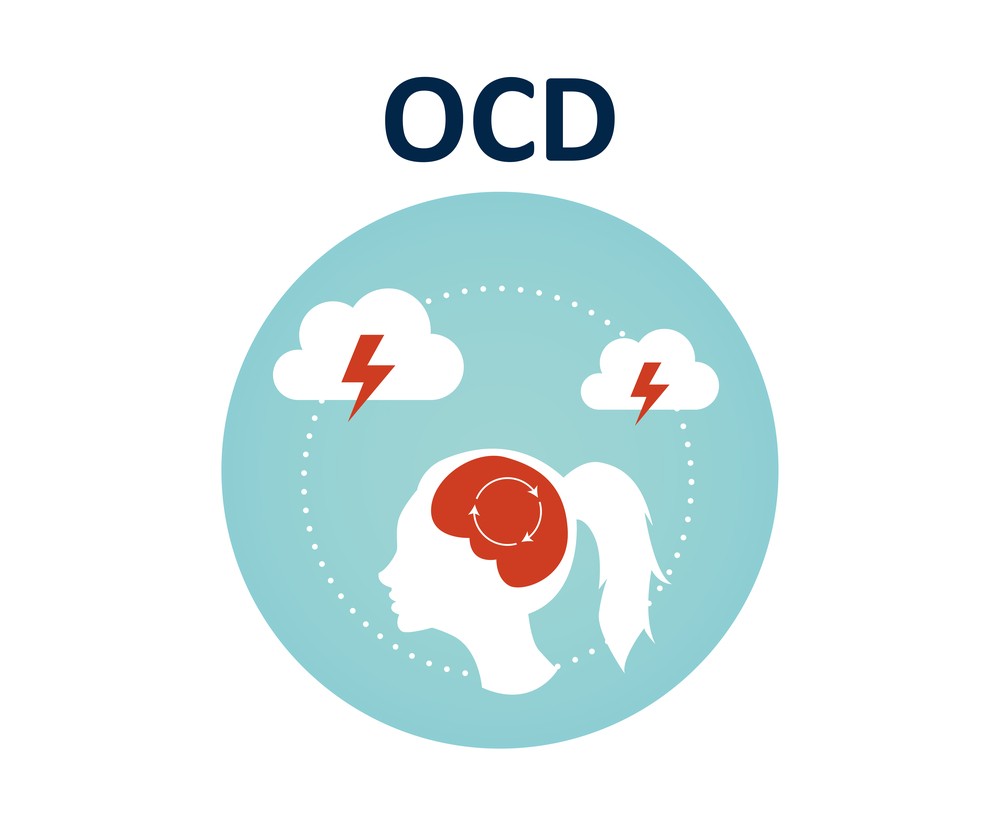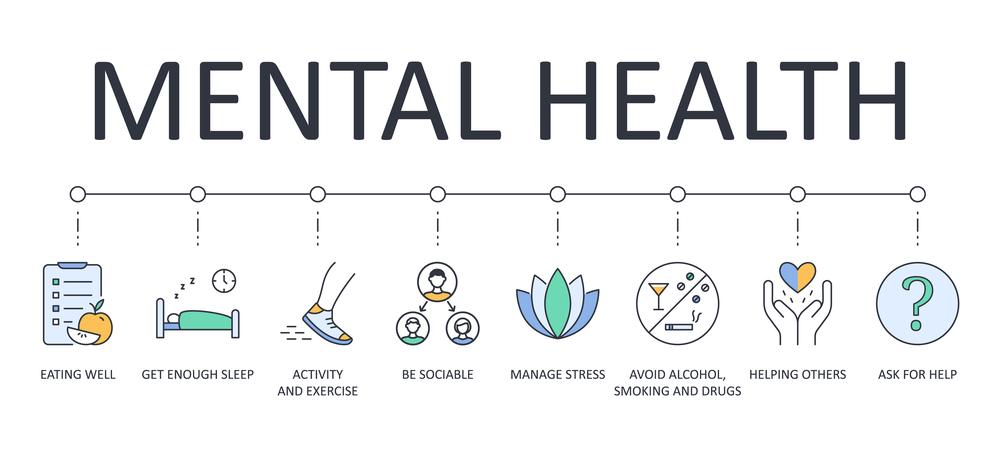As a BetterHelp affiliate, we receive compensation from BetterHelp if you purchase products or services through the links provided
Relationship OCD, or ROCD, is a lesser-known but increasingly prevalent condition in the field of mental health. It’s characterized by persistent doubts and fears about the quality and longevity of one’s relationships, leading to compulsive thoughts and behaviors. These intrusive thoughts and compulsions can put a strain on not only the individuals suffering from ROCD but also their partners and loved ones, who may be left feeling confused and frustrated.
Relationship OCD tests can be a valuable starting point for individuals who suspect they might be dealing with ROCD. These tests may provide insight into the types of thoughts, fears, and behaviors commonly associated with this condition and help determine the severity of their symptoms. However, it’s important to remember that self-assessment tests are not a substitute for professional diagnosis and treatment.
Key Takeaways
- Relationship OCD is an increasingly recognized mental health condition characterized by constant doubts and fears about one’s relationships
- Diagnostic tests may serve as a helpful starting point for those who suspect they have ROCD by providing insight into common thoughts and behaviors.
- While relationship OCD tests can provide valuable insight, they should not be considered a replacement for professional diagnosis and treatment
 Understanding Relationship OCD
Understanding Relationship OCD
Relationship OCD, also known as “ROCD” or relationship obsessive-compulsive disorder, is a subtype of obsessive-compulsive disorder (OCD). It is a mental health condition where you experience intrusive, repetitive thoughts focused on your relationships, precisely, doubts about your romantic relationships.
There are two main categories within Relationship OCD: relationship-centered and partner-focused. Relationship-centered ROCD involves obsessive thoughts about whether the relationship itself is right or should be continued. Partner-focused ROCD revolves around finding flaws or imagined shortcomings in your partner.
As someone dealing with Relationship OCD, you may experience heightened anxiety and distress within your romantic relationships. This can manifest through constant questioning and reassurance-seeking behaviors about the relationship’s worthiness or your partner’s qualities. Additionally, you might find yourself engaging in compulsive behaviors aimed at relieving the anxiety caused by these obsessive thoughts, such as repeatedly checking for “signs” that the relationship is good or performing rituals centered around your partner.
It is essential to recognize that Relationship OCD is not a reflection of your genuine feelings towards your partner or your relationship but rather a manifestation of an underlying mental health condition. This condition can influence your brain and behavior through uncontrollable intrusive thoughts and compulsions that challenge your daily life.
To better manage Relationship OCD, consider seeking professional help from a mental health expert who specializes in OCD. They can provide cognitive-behavioral therapy (CBT) or other evidence-based treatment strategies that can help improve your mental health and relationships.
Remember, understanding Relationship OCD is the first step in acknowledging its impact on your life and seeking the necessary support and treatment to regain control over your thoughts and emotions.

Recognizing Symptoms of Relationship OCD
If you’re experiencing Relationship OCD (ROCD), it can be a bit tricky to recognize its symptoms. Be on the lookout for these common indicators:
- Anxiety: You might feel constant distress and unease about your relationship despite it being generally healthy and fulfilling.
- Doubts: Even when everything seems fine, you can’t help but question if your partner is right for you or if you genuinely love them.
- Stress: The doubts and fears associated with ROCD can create a lot of pressure and leave you feeling exhausted or overwhelmed.
- Unwanted thoughts: You may have intrusive thoughts about your partner, questioning their flaws, appearance, or intelligence, and these thoughts may become obsessive.
So, how do you differentiate these symptoms from general relationship concerns? Here are some key points to consider:
- Intensity: Your emotions and thoughts are far more extreme than typical in a healthy relationship. For example, you might constantly worry or feel extremely distressed about minor issues.
- Frequency: It’s not unusual to have concerns about your relationship, but if these thoughts are plaguing you constantly and interfering with your daily life, it could be a sign of ROCD.
- Unwarranted doubts: You experience constant doubts and question your love for your partner despite having a healthy and stable relationship.
Remember that recognizing the symptoms of Relationship OCD is the first step in seeking help and gaining control over it. Don’t be afraid to reach out for support from a therapist or counselor if you think you might be experiencing ROCD.
Types of Relationship OCD
When it comes to relationship OCD, there are two primary types that you might experience: relationship-centered and partner-focused OCD. Understanding these types can help you identify your struggles and begin working on strategies to manage them better.
Relationship-Centered OCD
With relationship-centered OCD, your fears and obsessions revolve around the relationship itself. You might question whether the relationship is right for you or whether your partner truly loves you. Some common concerns with this type include:
- Constantly analyzing your feelings for your partner
- Repeatedly seeking reassurance about the stability of the relationship
- Worrying about losing your partner due to minor disagreements
To cope with relationship-centered OCD, try the following:
- Actively practice accepting uncertainty in your relationship
- Recognize unproductive thought patterns and redirect them
- Find healthy outlets for your emotions (journaling, exercise, meditation)
Partner-Focused ROCD
For partner-focused OCD, also known as partner-focused ROCD, your obsessions center around your partner’s perceived flaws or shortcomings. These can range from physical attributes to personality traits and behaviors. Partner-focused symptoms might include:
- Frequently comparing your partner to other people, real or fictional
- Fixating on certain aspects of your partner and magnifying them in your mind
- Difficulty accepting your partner’s imperfections and unconditional love
Here are some coping strategies for partner-focused ROCD:
- Cultivate gratitude for the positive aspects of your partner
- Work on improving communication and understanding between you both
- Remind yourself that everyone has imperfections, including yourself
Remember, regardless of which type of relationship OCD you’re experiencing, it’s essential to be patient with yourself and open to seeking professional help if necessary. Understanding and addressing these issues can foster a healthier and more supportive relationship for you and your partner.
Emotional Impacts and Behaviors of ROCD
Relationship Obsessive-Compulsive Disorder (ROCD) can take an immense toll on your emotional well-being. You may experience a wide range of distressing emotions for you and your partner and the relationship.
1. Guilt and Shame: Some common feelings associated with ROCD include guilt and shame. You might feel guilty for doubting your partner’s love or ashamed for constantly questioning your emotions. These feelings can contribute to lower self-esteem, making it harder to trust yourself and your decisions.
2. Anxiety and Worry: ROCD can cause an overwhelming amount of anxiety. You may constantly worry about whether you’re with the right person or if you genuinely love your partner. This constant worrying can lead to compulsive behaviors such as excessively seeking reassurance from your partner, friends, or strangers.
3. Sadness and Irritability: The emotional toll of ROCD might also manifest as sadness and irritability. You could feel frustrated with yourself for not being able to control these obsessive thoughts. This frustration might spill over into your interactions with your partner, further straining the relationship.
Coping Strategies:
- Recognize that your feelings and compulsive behaviors are a result of ROCD and not necessarily a reflection of reality.
- Practice mindfulness techniques like deep breathing, grounding exercises, and meditation to reduce anxiety and help you stay present in your relationship.
- Contact a mental health professional for guidance, support, and possible treatment options.
- Be open and honest with your partner about your struggles with ROCD. They may be more understanding and supportive than you anticipate.
- Remember that relationships are a work in progress. It’s important to communicate openly, grow, and adapt together.
As you navigate the emotional impacts and behaviors of ROCD, keep in mind that you’re not alone. Seeking help and implementing healthy coping strategies can significantly benefit you and your relationship.
 Dealing with Unhealthy Behaviors and Urges
Dealing with Unhealthy Behaviors and Urges
When dealing with Relationship OCD, it’s essential to tackle the unhealthy patterns that can undermine your relationships. Here are some ways to manage behaviors and urges:
- Identify your compulsions: Recognize when you’re engaging in compulsive behaviors, such as seeking reassurance or obsessing over perceived flaws in your partner. Acknowledge the urge and remember that these behaviors can harm your relationship.
- Set boundaries: Establish limits on your reassurance-seeking and testing behaviors. For example, avoid repeatedly asking your partner for reassurance or snooping through their belongings for evidence of wrongdoing.
- Practice self-compassion: Understand that everyone has flaws, and accepting your partner and yourself for who you are is essential. Focus on the positive traits in your relationship instead of fixating on imperfections.
- Develop healthy coping mechanisms: Find alternative ways to manage your anxiety, such as mindfulness exercises, deep breathing, or engaging in activities that bring joy and relaxation.
- Seek professional help: A licensed therapist or psychologist can provide valuable guidance on identifying triggers and implementing effective strategies for managing Relationship OCD.
Remember, facing and overcoming your compulsions and urges is crucial for maintaining a healthy relationship. It might require time and effort, but these steps can help you build a stronger bond with your partner.
Exploring Common Triggers for Relationship OCD
It’s helpful to understand the common triggers that can lead to Relationship OCD. Being aware of these triggers enables you to manage your reactions more effectively. Here are some typical examples:
- Stress: When you’re under pressure, it’s more accessible for obsessions and doubts to take root. Everyday stressors and significant life events can both contribute to Relationship OCD.
- Uncertainty: Life is full of uncertainties, and relationships are no exception. Doubts about your partner’s love or the future of your relationship can fuel obsessive thoughts.
- Social situations: Interactions with others often include discussions about relationships, which can trigger Relationship OCD symptoms. Comparisons with other couples, either in person or online, might lead you to question your relationship.
- Comparison: It’s natural to compare your relationship with others, but it becomes unhealthy when it fuels Relationship OCD symptoms. Remember, all relationships are unique, and not all should be compared.
- Evaluating: Constantly evaluating your feelings and questioning your love for your partner can amplify Relationship OCD. When you catch yourself doing this, try to remind yourself that love is not a constant feeling, and it’s expected to have fluctuations in the intensity of your emotions.
Key takeaway: Being aware of common triggers for Relationship OCD, such as stress, uncertainty, and comparison, can help you manage your responses more effectively. Recognizing these triggers and working on ways to cope with them can be an essential step in overcoming Relationship OCD.
 Identifying Treatment and Therapy Options
Identifying Treatment and Therapy Options
When you suspect that you might be dealing with Relationship OCD, it’s essential to explore the various treatment and therapy options available to address your symptoms. Doing so will empower you to take charge of your mental health and improve your relationships.
One highly effective treatment is Cognitive Behavioral Therapy (CBT), which can help you identify and alter the distorted thoughts and beliefs that contribute to your Relationship with OCD. Through CBT, you’ll learn:
- How to challenge obsessive thoughts
- Techniques for resisting compulsions
- Strategies for managing anxiety
It’s essential to work with a qualified mental health professional who has experience with Relationship OCD. When searching for a therapist, consider the following tips:
- Look for a therapist who specializes in treating OCD and anxiety disorders
- Seek recommendations from friends, family, or healthcare providers
- Check online directories and reviews for local therapists
In addition to therapy, consider exploring natural treatments that can help alleviate Relationship OCD symptoms. These may include:
- Engaging in regular exercise
- Practicing mindfulness and meditation
- Maintaining a healthy diet and sleep schedule
You may also benefit from medication to manage your symptoms. Serotonin reuptake inhibitors (SSRIs) are one type of medication commonly used to treat Relationship OCD. However, consulting with a healthcare professional before starting any medication is crucial.
Remember, finding the proper treatment and therapy options for your unique circumstances is an essential step in overcoming Relationship OCD and nurturing healthy, happy relationships. Keep an open mind as you explore these avenues, and trust that with time, effort, and support, you can thrive in your relationships.
 The Role of Romantic Relationships and Sex in ROCD
The Role of Romantic Relationships and Sex in ROCD
In your journey to understand Relationship OCD (ROCD), it’s essential to recognize how romantic relationships and sex play a significant role in this condition. Here, we will briefly discuss their impact on ROCD symptoms and how they often intertwine with other aspects of the disorder.
When you enter a new romantic relationship, it’s natural for you to feel both attraction and love toward your partner. You might even question your love’s strength or legitimacy as these emotions develop. This is not unusual, but for individuals with ROCD, these feelings can transform into intrusive thoughts and obsessions about the relationship.
Moreover, dealing with ROCD can strain not just your emotional connection but also your sexual intimacy with your partner. It’s important to recognize that sexual functioning and desire can be affected by ROCD-related anxiety. In turn, these issues can further fuel the disorder, creating a vicious cycle that impacts your overall intimacy and trust in the relationship.
For many individuals, the key to addressing ROCD lies in understanding its causes and triggers. Often, the pattern of intrusive thoughts linked to romantic relationships is rooted in insecurities and fears, which might stem from past experiences or personal beliefs.
To better manage your ROCD symptoms, you can implement the following strategies:
- Seek professional help: Engage in therapy sessions with a specialist who understands ROCD and its effects on romantic relationships and sex.
- Establish healthy boundaries: Create open lines of communication with your partner to discuss mutual concerns and manage expectations.
- Practice mindfulness: Regularly engage in meditation or yoga to help ease anxiety symptoms and improve your mental well-being.
Remember, it’s crucial to be proactive about addressing your ROCD symptoms and understanding their impact on your romantic relationships and sex life. With diligence, patience, and a supportive partner, you can progress and strengthen your bond with your loved one.
 Understanding the Effects of ROCD on Different Relationships
Understanding the Effects of ROCD on Different Relationships
Relationship OCD (ROCD) can have a profound impact on various types of relationships, including romantic partnerships, friendships, and even parent-child connections. Understanding the consequences of this condition on different relationships is essential to address the issue effectively.
In romantic relationships, ROCD may generate constant doubts and obsessive thoughts that can strain the bond between partners. You might question your love for your partner or their love for you, which can lead to emotional turmoil and frustration. Eventually, this may result in relationship distress, breakups, or a lack of intimacy.
When it comes to parent-child relationships, ROCD can manifest in intrusive thoughts about your child’s well-being or your ability as a parent. This kind of anxiety may lead you to become overly protective or controlling, hindering your child’s growth and self-confidence.
ROCD may create uncertainty about the trustworthiness or value of these connections for friendships. You might even obsess over minor issues or past arguments, leading you to question the friendship’s strength and validity.
Intimate relationships may also suffer due to ROCD, as the condition can cause distressing thoughts about physical closeness and compatibility. The resulting emotional strain might undermine your intimacy with your partner, making it hard to enjoy the aspects of your relationship that once felt fulfilling.
The various forms of relationship distress caused by ROCD may lead to some common consequences, such as:
- Anxiety and stress
- Decreased self-esteem
- Feeling isolated or misunderstood
- Strained communication
By understanding how ROCD affects different relationships, you’re better equipped to tackle the condition and maintain healthy, happy connections with those closest to you.
Evaluating Online Resources for Relationship OCD Test
When looking for a reliable relationship OCD test online (we have included some screening questions below), it’s essential to be cautious and discerning. Here are some key factors to consider when evaluating online resources for an OCD test:
- Research the sources: Start by checking the credibility and reputation of the website providing the test. Look for professional affiliations, credentials, or related references to ensure the test is based on proper research. You should be able to find additional information about the authors or creators of the test, their expertise, and their affiliations.
- Look for scientific background: Make sure the test is supported by scientific research. OCD tests, especially those focusing on relationships, should be backed by empirical evidence and well-established methodologies. You can typically find references to the relevant studies or theories in the test description or elsewhere on the website.
- User-friendly app or website: A quality OCD test should be offered through a user-friendly app or website that guides you through the process quickly and without confusion. This can include clear instructions, an easy-to-use interface, and a thorough explanation of the results.
- Privacy considerations: Be wary of websites that request personal information, such as your email address or full name. Reputable tests should respect your privacy and allow you to take the test anonymously. Additionally, check the privacy policy to ensure your data is handled responsibly.
- Seek professional guidance: While online relationship OCD tests can provide insights into your feelings and behaviors, they shouldn’t be used as a sole diagnostic tool. It’s essential to consult with a mental health professional for a proper assessment and guidance.
Key Takeaway: By researching the sources, analyzing scientific background, considering privacy, using a user-friendly app or website, and seeking professional guidance, you can evaluate the reliability of online relationship OCD tests effectively. Remember to treat the results as additional information, not as a definitive diagnosis.
Navigating Your Feelings: A Comprehensive Self-Screening for Relationship OCD”
Expanding Your Understanding of Relationship OCD
As we’ve explored in our blog, Relationship OCD (ROCD) is a complex condition involving persistent doubts and fears about one’s relationships. It manifests in compulsive thoughts and behaviors, impacting not just the individual but their loved ones.
Enhanced Self-Screening Test for ROCD
This extended self-screening test offers a broader perspective on the various aspects of ROCD. Remember, this is a tool for self-reflection and not a substitute for professional diagnosis.
- Persistent Doubts: How often do you experience doubts about your partner’s love or suitability for you without significant reason?
- Rarely
- Sometimes
- Often
- Almost Always
- Reassurance-Seeking: Do you frequently need reassurance from others about the strength and validity of your relationship?
- Rarely
- Sometimes
- Often
- Almost Always
- Partner Analysis: How often do you excessively analyze your partner’s behavior or words for signs of love and commitment?
- Rarely
- Sometimes
- Often
- Almost Always
- Impact on Functioning: To what extent do these concerns disrupt your daily activities and emotional state?
- Not at all
- A little
- Moderately
- Severely
- Avoidance of Intimacy: Have your fears led you to avoid intimate situations or serious commitments in relationships?
- Never
- Once or Twice
- Several Times
- Repeatedly
- Social Comparison: Do you often compare your relationship to others, feeling yours doesn’t measure up?
- Rarely
- Sometimes
- Often
- Almost Always
- Fear of Making the Wrong Choice: Are you constantly worried that you might be in the wrong relationship despite evidence to the contrary?
- Rarely
- Sometimes
- Often
- Almost Always
- Obsession Over ‘The One’: Is there an overwhelming preoccupation with the idea of finding the ‘perfect’ partner or ‘the one’?
- Rarely
- Sometimes
- Often
- Almost Always
- Emotional Turmoil: How frequently do your relationship doubts cause significant distress or feelings of hopelessness?
- Rarely
- Sometimes
- Often
- Almost Always
- Effect on Relationships: Have your doubts and behaviors related to ROCD led to conflicts or issues in your relationships?
- Never
- Once or Twice
- Several Times
- Repeatedly
Interpreting the Results:
- Mostly ‘Rarely’: Your responses don’t strongly indicate ROCD.
- Mixed Responses: You may exhibit some ROCD symptoms; awareness and further exploration could be beneficial.
- Mostly ‘Often’ or ‘Almost Always’: Your answers suggest a significant presence of ROCD characteristics. Seeking a mental health professional’s guidance is advisable.
Final Note: Professional Insight is Key
This test is the beginning of your journey toward understanding. If you’re concerned about your results, reaching out to a mental health professional is a vital step. They can offer a detailed assessment and appropriate treatment, supporting you towards a healthier, more fulfilling relationship experience. Remember, acknowledging and addressing these concerns is a brave and necessary step toward healing.
Key Takeaway: A relationship OCD test can be a beneficial tool in recognizing Relationship Obsessive-Compulsive Disorder symptoms. However, it’s crucial to follow up with professional help, maintain open communication with your partner, and make a collaborative effort to ensure the well-being of your relationship.
Frequently Asked Questions
How do I know if I have Relationship OCD?
If you constantly doubt your feelings towards your partner, obsessively question your relationship’s validity, or frequently seek reassurance from your partner about their love, you might have Relationship OCD (ROCD). Consider talking to a mental health professional to get a personalized diagnosis.
Can Relationship OCD be treated?
Yes, Relationship OCD can be treated. Cognitive-behavioral therapy (CBT) and exposure therapy are commonly used to help manage ROCD symptoms. Medication, like antidepressants (SSRIs), can be helpful too. Consult with a mental health professional to discuss the best treatment plan for your situation.
Key takeaway: ROCD is treatable with therapy and medication.
What are some common symptoms of ROCD?
Some common symptoms of ROCD include:
- Persistent doubts about your relationship
- Repeatedly seeking reassurance from your partner
- Obsessively checking your feelings towards your partner
- Comparing your relationship to other relationships
- Avoiding situations that may trigger doubts or anxiety
How does Relationship OCD affect my friendships?
ROCD can impact your friendships by causing you to withdraw from social situations or constantly seek reassurance from friends about your relationship. Friendships may suffer if you become overly dependent on friends for emotional support or if you’re preoccupied with your relationship.
Key takeaway: ROCD can strain friendships and lead to social isolation.
What differentiates Relationship OCD from Borderline Personality Disorder?
Both ROCD and Borderline Personality Disorder (BPD) can involve relationship instability, but there are key differences:
- ROCD focuses on intrusive thoughts and obsessions about the relationship, while BPD involves intense mood swings and unstable self-image.
- People with ROCD usually recognize their thoughts as irrational, while individuals with BPD may view their thoughts as justified.
- ROCD is an anxiety disorder, whereas BPD is a personality disorder.
Consult with a mental health professional for proper diagnosis.
Key takeaway: ROCD and BPD have distinct characteristics and require different treatment approaches.
How can I manage OCD triggers in a relationship?
To manage OCD triggers in a relationship, try these strategies:
- Develop a self-care routine to reduce stress
- Practice mindfulness to help manage intrusive thoughts
- Set boundaries to maintain balance in your relationship
- Seek professional help to learn specific coping techniques
Key takeaway: Managing OCD triggers is possible with self-care, mindfulness, boundaries, and professional guidance.
About Jacob Maslow
After surviving the traumatizing events of 9/11, I took it upon myself to heal through helping others. I’m the primary caregiver of my children and understand from first-hand experience the lonely paths you have to walk as a partner and parent when leaving an unhealthy relationship.
We’re all echoing in a dark space that doesn’t have to be this empty, and that’s been my mission since finding solace and recovery in therapy: To help comfort others who are still in shock and at the prime of their struggle.
I came across BetterHelp after searching for this type of community. I wanted to belong to a body of proactive therapists and supportive therapy veterans who allowed me to see other sides of the story.
It was unconventional, and that’s what attracted me most. During my most challenging times, when my ex-wife completely cut me off from my children, I found comfort and clarity through BetterHelp.
Instead of being chained to a strict therapist recommendation, I was in charge of who I felt understood my struggle most. That allowed me to find my true peace, as I was reunited with those who read behind my words and had first-hand experience with my trauma.
Recovery is a choice; with BetterHelp, that choice will be a few clicks away. You can join their couples-oriented platform, Regain.us, for those stuck with family estrangement and toxic relationship patterns.
- 3 Ways Wearing a Hat Can Help Lower Your Stress Levels - April 19, 2025
- Breaking the Silence: Why Men’s Mental Health Matters More Than Ever - April 15, 2025
- How to Transform a Home’s Patio Space into a Relaxing Space - March 23, 2025
This site contains affiliate links to products. We will receive a commission for purchases made through these links.


 Understanding Relationship OCD
Understanding Relationship OCD Dealing with Unhealthy Behaviors and Urges
Dealing with Unhealthy Behaviors and Urges Identifying Treatment and Therapy Options
Identifying Treatment and Therapy Options The Role of Romantic Relationships and Sex in ROCD
The Role of Romantic Relationships and Sex in ROCD Understanding the Effects of ROCD on Different Relationships
Understanding the Effects of ROCD on Different Relationships
